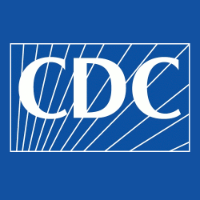CDC TRAVEL RECOMMENDATIONS
Travel increases your chance of spreading and getting COVID-19.
If you must travel, here are some important questions to ask yourself and your loved ones beforehand.
- Are you, someone in your household, or someone you will be visiting at increased risk for getting very sick from COVID-19?
If you get infected you can spread the virus to loved ones during travel and when you return, even if you don’t have symptoms. If your household includes one or more individuals at increased risk for severe illness, all family members should act as if they, themselves are at increased risk. Learn how to protect yourself and others. - Are hospitals in your community or your destination overwhelmed with patients who have COVID-19? To find out, check state, territorial, and local department websites.
- Does your home or destination have requirements or restrictions for travelers? Check state, territorial, and local requirements before you travel.
- During the 14 days before your travel, have you or those you are visiting had close contact with people they don’t live with?
The following activities can put you at higher risk for COVID-19: - Going to a large social gathering like a wedding, funeral, or party.
- Attending a mass gathering like a sporting event, concert, or parade.
- Being in crowds like in restaurants, bars, fitness centers, or movie theaters.
- Taking public transportation like planes, trains, or buses, or being in transportation hubs like airports.
- Traveling on a cruise ship or riverboat.
- Do your plans include traveling by bus, train, or air, which might make staying 6 feet apart difficult?
- Are you traveling with people who don’t live with you?
If the answer to any of these questions is “yes,” you should delay your travel.
If You Must Travel
If you decide to travel, take these steps to protect yourself and others from COVID-19:
- If you are eligible, get fully vaccinated for COVID-19. Wait 2 weeks after getting your second vaccine dose to travel—it takes time for your body to build protection after any vaccination.
- Get tested with a viral test 1-3 days before you travel. Keep a copy of your test results with you during travel in case you are asked for them. Do NOT travel if you test positive.
- Check travel restrictions before you go.
- Wear a mask over your nose and mouth when in public settings. Masks are required on planes, buses, trains, and other forms of public transportation traveling into, within, or out of the United States and in U.S. transportation hubs such as airports and stations.
- Avoid crowds and stay at least 6 feet/2 meters (about 2 arm lengths) from anyone who did not travel with you. It’s important to do this everywhere — both indoors and outdoors.
- Wash your hands often or use hand sanitizer (with at least 60% alcohol).
- Bring extra supplies, such as masks and hand sanitizer.
- Avoid contact with anyone who is sick.
- Avoid touching your eyes, nose, and mouth.
Do NOT travel if you were exposed to COVID-19, you are sick or you test positive for COVID-19. Learn when it is safe for you to travel. Don’t travel with someone who is sick.
If you have any questions or would like to read the CDC's current recommendations, please visit the CDC Website here. For more information about COVID-19, please visit the CDC Website here.

